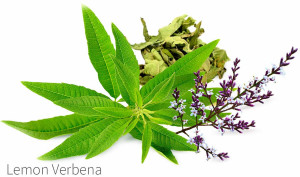 At this time of the year, I long for good scents. The evocative holiday aromas—evergreens, baked goods, mulled cider—are gone with the decorations. All we have left are the unique olfactory signatures of things like wet wool, musty basements and, for pet owners, damp dogs. It is depressing.
At this time of the year, I long for good scents. The evocative holiday aromas—evergreens, baked goods, mulled cider—are gone with the decorations. All we have left are the unique olfactory signatures of things like wet wool, musty basements and, for pet owners, damp dogs. It is depressing.
It would be so much better to catch the scent of lemon verbena, and I have given myself repeated mental kicks for not thinking of about the plant sooner. If I had purchased even a single lemon verbena or Aloysia citriodora, last spring or summer, I would be able to catch regular whiffs of the plant’s unique, sweet-citrus fragrance every day. My annual case of the January doldrums would have been thwarted, and I would have more energy to do important winter tasks like cleaning out my basement. When spring rolls around, I will be smarter.
Lemon verbena, which is sometimes known as vervane, verveine, or even “lemon beebrush”, is a South American subtropical shrub that is only hardy to USDA plant hardiness Zone 8. This means that if you live in a place where winter temperatures fall below freezing, the plants won’t survive outdoors. Fortunately, lemon verbena is easily grown in containers and can spend the cold months lifting your spirits from a sunny corner of your home.
The botanical world is home to lots of lemon-scented plants, including varieties of geranium, mint, thyme and other herbs. Lemon verbena, which grows two to four feet tall and wide in captivity, features long, lance-shaped green leaves that smell strongly of lemon. I think the fragrance is sweeter and more perfume-y than lemon balm or lemon-scented geranium. It is also more pervasive and persists strongly in the dried leaves. This makes lemon verbena a double threat—wonderful on the plant and equally valuable in potpourri or steeped into a tea.
Spanish explorers first discovered lemon verbena in the 17th century, while making their way through South America. They shipped seeds or cuttings back to Spain, where the plant won admirers and caught on. By the following century, it had found a comfortable home in England as well. Eventually the plant acquired the genus name “aloysia”, which honors a late eighteenth-early nineteenth century noblewoman, Maria Louisa, who was married to King Carlos IV of Spain.
All those royal associations did not keep common people in warm winter areas from growing lemon verbena in their gardens. Without the interference of cold temperatures, the plants can grow up to 15 feet tall, providing bumper crops of scented leaves for all kinds of purposes.
Over the centuries, lemon verbena has been used as a culinary, cosmetic and healing herb. Its lemony scent and flavor have made it especially popular in desserts and teas, while its healing properties have been used against complaints including colds, fevers and gastrointestinal ailments.
In our time, most gardeners cultivate lemon verbena for its attractive green leaves and fragrance. Grown outside, it is also decorative and may produce small, whitish-purple flowers with a sweet scent. Whether potted or grown in-ground, the plants appreciate a sunny spot and well-drained soil with regular moisture. The leaves are the most aromatic at flowering time, but to harvest them you might have to joust with the attentive bees that frequent the blooms.
Lemon verbena is part of the same Verbenaceae family as decorative garden favorites like Verbena bonariensis. It works well in mixed, annual-perennial-shrub borders or herb gardens. To maximize its fragrant effect, plant it near areas where people either pass or congregate.
If you buy a lemon verbena plant, trim the stems back regularly to harvest the leaves and keep the plant relatively compact. Verbenas love to summer outside, but if you give your plant that kind of vacation, be sure to bring it into the house when fall temperatures start dropping into the fifties at night. During the first few weeks of housebound existence, the verbena will probably drop leaves in protest. Do not lose control and fling the container out for bulk pick-up. Once it gets over the shock, it will regrow new, scented leaves.
This spring I will atone for earlier sins of omission and purchase a lemon verbena. Many well-stocked local nurseries and garden centers carry the plants. You can also order from online vendors, including White Flower Farm, P.O. Box 50, Route 63 Litchfield, Connecticut 06759; (800) 503-9624; www.whiteflowerfarm.com. Free print catalog.
